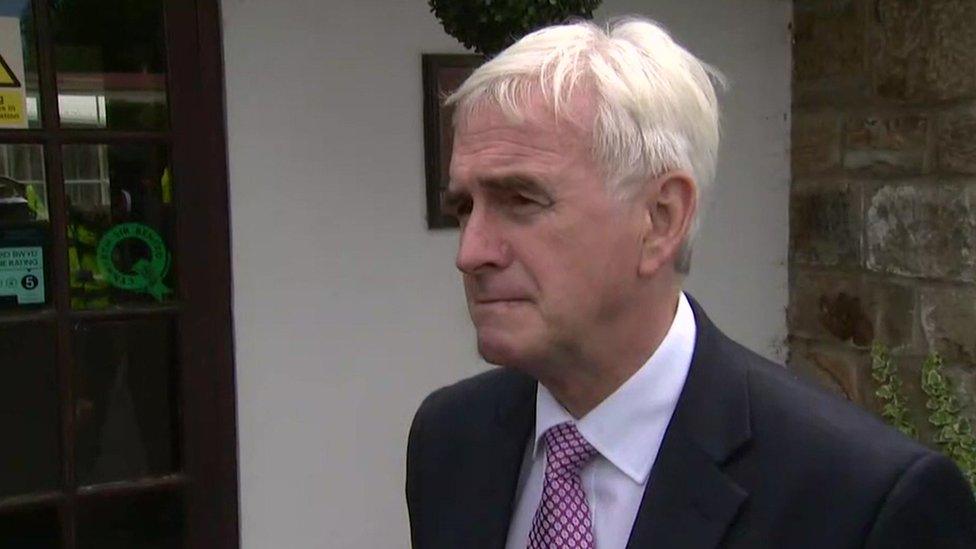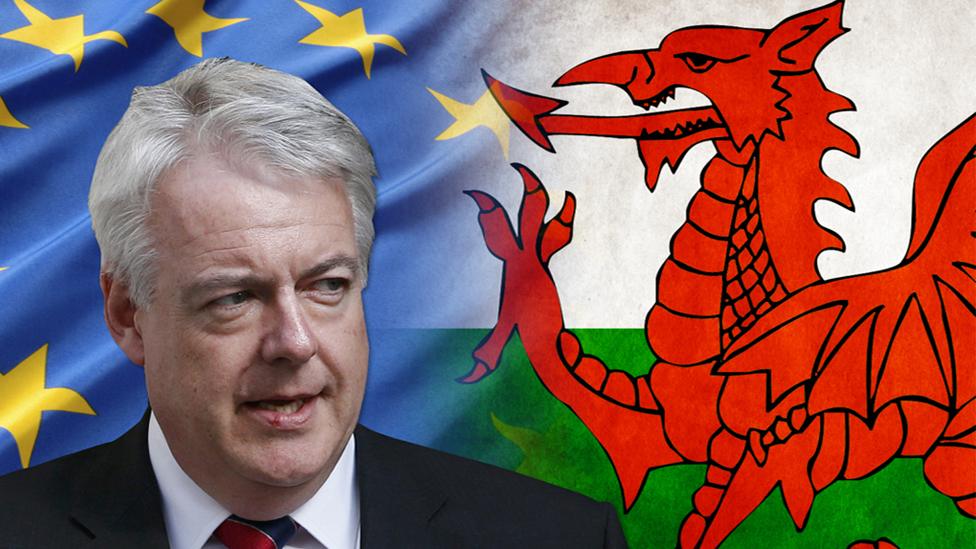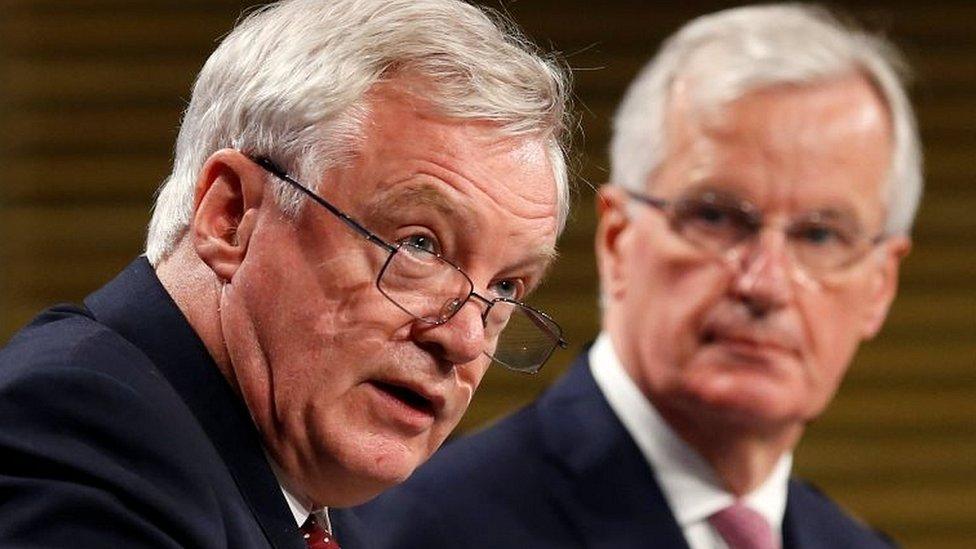John McDonnell not ruling out single market membership
- Published

Labour has not ruled out continued membership of the EU single market, John McDonnell has said, as he sought to play down divisions over Brexit.
Everyone wanted tariff-free access to EU markets, the shadow chancellor said.
But there was a debate on-going within the Labour Party about whether the best option was continued membership or a separate agreement, he added.
Jeremy Corbyn has suggested the single market is "inextricably linked" to EU membership and the UK cannot remain.
Speaking on Sunday, the Labour leader said leaving the EU meant leaving the EU's internal market - whose members must abide by rules on the free movement of goods, capital, services, and labour.
The party's international trade spokesman, Barry Gardiner, has gone further, saying the UK should also rule out remaining in the customs union beyond any transitional period, claiming that failing to do so would make the UK a "vassal state" unable to negotiate sovereign trade deals.
However, many Labour MPs disagree with both positions - arguing that it is in the UK's economic interests to remain in both. They point out there are non-EU members, like Norway, which have full access to the single market and countries such as Turkey which belong to the customs union.
And Welsh first minister Carwyn Jones is arguing Labour should be pushing for the UK to remain in the single market - even though it might mean not being able to impose any controls on immigration from the EU.
Mr McDonnell insisted Labour had a "straightforward" position on the type of access the UK needed to its largest market after it leaves the EU in March 2019.
"Our objective is tariff-free access to the market," he said. "That has been our objective since immediately after the referendum.
"The structures - whether we are in or out - are a secondary matter.
"We are not ruling anything out but what we are saying is that we are the fifth largest economy in the world and we have a special status in both our relationship with the EU and the rest of the globe and we feel we can get a deal that achieves tariff-free access."
'Special status'
Pressed on whether he and Mr Corbyn disagreed on the matter, he said: "I think we are all on the same page with regard to our objectives... there is a debate around whether it is full membership or a new relationship or a separate agreement.
"What we are saying is keep our eye on what is the most important objective, tariff-free access. We can achieve that."
The BBC's assistant political editor Norman Smith said there was a "deep internal divide" within the party and the shadow chancellor was seeking to "soften" the party's stance following a backlash by pro-EU MPs and trade unionists over Mr Corbyn and Mr Gardiner's remarks
Amid signs of growing internal strains over Brexit, the former shadow health secretary Heidi Alexander said she had never felt "more concerned" about her party's position.
"My colleague Barry Gardiner's contribution to the Brexit debate, in which he argues for the UK to come out of the single market and customs union to facilitate Brexit was, for me, depressing and disingenuous in equal measure," she wrote in the Guardian., external
She accused her colleague of using arguments on sovereignty, immigration and the legal jurisdiction that "could have come straight out of Tory Central Office", Instead, she said Labour must focus on the damage posed to those on low and middle incomes of a so-called hard Brexit.
The government has said the UK will leave the single market and customs union but could maintain some existing arrangements for an interim period to help British business adjust.
- Published13 June 2017

- Published21 July 2017
